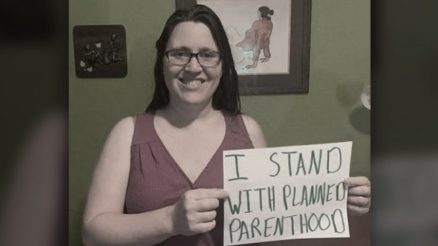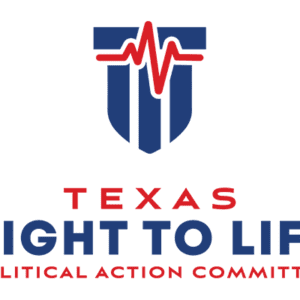Bioethicist rejects so-called reforms to futile care laws
Tuesday, 19 March, renowned Bioethicist Wesley J. Smith joined Pro-Life advocates concerned by Senate Bill 303, which would worsen how the disabled and elderly are treated in Texas. Senate Bill 303, falsely promoted as an improvement to the Advance Directive Law of 1999, specifies that treatment can be withdrawn from the disabled and terminally ill for subjective, moral reasons, rather than medical reasons.
Because of his work in the field of bioengineering and numerous award-winning books and columns, Wesley Smith gave expert testimony opposing SB 303 once being invited by Texas Right to Life. Smith is known for his work with the Patients Rights Council and is also a special consultant for the Center for Bioethics and Culture. He is renowned nationally and internationally for his work regarding human exceptionalism and medical ethics.
Mr. Smith has studied in-depth and has previously addressed and criticized the current Texas Advanced Directives Law. His opposition to SB 303 gives great concern over the effect of the bill. The elderly and disabled are at risk in Texas under the current law, and Smith joins Texas Right to Life in working to safeguard all Texans from gross quality-of-life discrimination; SB 303 does not ensure those protections are in place.
Below is the testimony Wesley J. Smith gave on March 19 before the Senate Health and Human Services Committee in opposition to SB 303.
Testimony of Wesley J. Smith, JD, before the Texas Senate Health and Human Services Committee in Opposition to S.B. 303
March 19, 2013
Good afternoon. My name is Wesley J. Smith. I am a lawyer, author, and consumer advocate. I am a senior fellow at the Discovery Institute’s Center on Human Exceptionalism, and a consultant for both the Patients Rights Council and Center for Bioethics and Culture.
For the last twenty years, I have been deeply engaged internationally in public policy debates about the most important bioethical issues facing our nation and global community. These include researching and writing about the ongoing erosion of Hippocratic medical values in bioethics in areas such as assisted suicide, denial and withdrawal of medical treatment, and other areas of concern. I am the author or coauthor of 12 books, including Forced Exit: Euthanasia, Assisted Suicide, and the New Duty to Die, which was first published in 1997 and now is in its third edition. I also wrote Culture of Death: The Assault on Medical Ethics in America. Culture of Death was named “Best Health Book of the Year” at the 2001 Independent Publishers Book Awards. Both books deal substantially with the issues involving denial of medical treatment and healthcare for the dying and disabled. I have also written extensively in the professional and popular media about matters involving bioethics, human exceptionalism, and the intrinsic equality of all human life. My biography is attached to my testimony.
My work in the fields about which I advocate is entirely secular, which I believe is appropriate to the creation of public policy in a nation governed by the rule of law.
I appear today to urge this committee to reject SB 303. It is my understanding that the primary purposes of the bill are to improve Texas’s (terrible, from my perspective) medical futility law and to codify standards for applying Do Not Resuscitate orders. The bill fails in its former purpose and worsens both situations.
Unilateral or “Forced” DNR Orders Should Not Be Allowed
There is much about which to be concerned in S.B. 303. Foremost in my mind is the prospect of doctors placing DNR orders on a patient’s chart unilaterally, which once done, places onerous burdens on patients, family members, or surrogates to have the order removed if it is not wanted. Moreover, DNR orders—which could mean no medical action would be taken to resuscitate the patient in the event of cardiac arrest—would be able to be placed on a patient’s chart by a doctor without notice or permission–even if the patient is competent! From the text of S.B. 303:
Sec.A166.012. STATEMENT RELATING TO DO-NOT-RESUSCITATE ORDERS.
(c) Before placing a do-not-resuscitate (DNR) order in a patient ’s medical record, the physician or the facility’s personnel shall make a reasonably diligent effort to contact or cause to be contacted the surrogate. The facility shall establish a policy regarding the notification required under this section. The policy may authorize the notification to be given verbally by a physician or facility personnel. (d)The DNR order takes effect at the time it is written in the patient ’s chart or otherwise placed in the patient ’s medical record. (e) If the patient or surrogate disagrees with the DNR order being placed in or removed from the medical record, the patient or surrogate may request a second opinion at the patient ’s or surrogate ’s expense.
Please notice that the bill does not require the doctor to discuss the DNR with the patient before it is placed on the chart. Nor, beyond seeking to “contact” a surrogate, is there any requirement about what should happen once the contact has been successful. Does the doctor have to ask permission? It would seem not. Does the doctor have to explain his or her reasons for placing the DNR on the chart? It would seem not. Indeed, the bill doesn’t even specify that the patient or surrogate has to be told the DNR has been imposed! Indeed, the bill merely states that facilities are to “establish a policy regarding the notification required,” when in fact, the bill is silent about such a requirement.
And what happens if the patient, family, or surrogate learns about the DNR and disagrees with the decision? The onus is wholly on the objecting party, who is allowed to obtain a second opinion at their own expense.
That is the reverse of a proper and equitable approach: If a doctor wishes to impose an unwanted DNR on a chart, the doctor should have the burden of demonstrating why it is necessary to go against the wishes of patient, family, or surrogate.
Senators, many of the people who will fall afoul of this provision if it is enacted into law will be poor or uninsured. They may not have the money to pay for a second opinion. They may not speak English. They may not understand medical nomenclature. And what if the second opinion is that the DNR is misapplied? That doesn’t settle the matter! The family then has to then endure the so-called committee meeting to present their “case” for the DNR to be removed. And during the entire time it would take to:
• Retain another doctor;
• Have the patient’s files transferred for review;
• Arrange for the second doctor, who is presumably busy with existing patients, examine the patient;
• Prepare for an ethics committee hearing; and,
• Attend the hearing,
the DNR will remain on the chart to be applied in the event of a cardiac or respiratory arrest.
And please consider what this will mean to the people—your constituents—who will have to work within the law and whatever procedures the hospitals may establish. These will be people in crisis: A loved one is lying in a hospital bed away from home—seriously ill. We have all experienced the stressful and emotionally draining experience of a loved one hanging in the balance. Adding such an additional and onerous burden upon people who are in such demanding, perhaps even, traumatic circumstances–to, in essence, requires them to fight for their loved one’s life against his or her own doctor—is simply beyond the pale.
More than that, it is the antithesis of social justice. Many simply will not be able to do it. Maneuvering through the medical system is a daunting task for those even with some familiarity of the field. For those untrained in the field and grappling with an ailing loved one, such navigation would be incomprehensible. Asking people who may not have the education, life skills, or ability to carry the burden of removing an unwanted order is unfair and unwise. It will breed distrust in the medical system and lead many to conclude in a time of health care cost cutting—whether rightly or wrongly—that their loved one was simply deemed too expensive to save.
I believe the above factors provide abundant reasons to reject S.B. 303. But adding insult to injury, the “reasonably diligent effort to contact” requirement only applies to patients who are not expected to die within weeks or days. If the patient is expected to die imminently, or if resuscitation is deemed “medically ineffective,” the minimal obligation to even attempt notification and the right to a self-paid second opinion does not exist:
(f) Subsection (c) [the notification section quoted above] does not apply to a DNR order placed in the medical record of a patient:(1) whose death, based on reasonable medical judgment, is imminent despite attempted resuscitation; (2) for whom, based on reasonable medical judgment, resuscitation would be medically ineffective and there is insufficient time to contact the surrogate;…
Subsection (e) [right to obtain second opinion] does not apply to a DNR order placed in the medical record of a patient with respect to whom, based on reasonable medical judgment, death is expected in days to weeks and resuscitation would be medically ineffective.
What does “medically ineffective” mean? The term is used throughout SB 303 and is not defined. Moreover, it couldn’t be the same as “imminent despite attempted resuscitation,” or that language would have been repeated. Given the justifications for futile care arguments, this could reflect a judgment based on “quality of life” rather than the resuscitation and medical treatment being physiologically useless. At the very least, the language—which again, involves life and death—is imprecise and confusing.
Doctors who impose DNRs on charts without permission would be accorded extraordinary legal protection for their mistakes or unilateral inactions:
A physician, health professional acting under the direction of a physician, or health care facility is not civilly or criminally liable or subject to review or disciplinary action by the appropriate licensing authority if the actor has complied with the procedures under this section…
So, even if the physicians are negligent in placing the DNR on the chart, so long as they follow the procedure, they are home free? This would mean that there would be no checks and balances in an issue of life and death! More ironically, a doctor who did not place a DNR on the chart could face greater legal scrutiny for that decision in the event of a later dispute than if he did issue the order.
There is an important principle at stake in the DNR section of S.B. 303. Such decisions should not be doctor’s to make unilaterally based on his or her own medical opinion or value judgment. It’s a simple matter of checks and balances. If a doctor believes wanted resuscitation would violate ethics or be harmful to the patient, the hospital should carry the burden of proof and expense of obtaining court permission. And certainly, the patient or surrogate should be consulted first, or a guardian named to represent the patient if none can be found.
The Problem of Imprecise Language in S.B. 303
Section 166.046, which would set forth the procedure if a physician disagrees with a decision for treatment is rife with vague and imprecise language to the detriment of the patients and families who would be impacted, often adversely, by the provisions of the bill.
1. The term “terminal illness: is not defined:
Section 7, a-1 states:
If the patient has been diagnosed with a terminal condition…
What is a terminal condition under the bill? Does it mean a month to live based on reasonable medical certainty? Six months? Does the diagnosis include a terminal expectation even if treatment is provided, or does it refer to a condition likely to cause death only if untreated? After all, diabetes is a terminal illness without the administration of insulin. AIDS is a terminal illness, but patients can live for years with proper treatment.
The bill then states:
…the ethics or medical committee shall determine if, based on reasonable medical judgment, the treatment would:
1) hasten the patient’s death;
2) seriously exacerbate other major medical problems;
3) result in irremediable physical pain or discomfort not outweighed by the benefit of the treatment; or
4) be medically ineffective in prolonging the patient’s life.
The language used to describe these four criteria is vague and imprecise. For example, what is a “major medical problem?” And as discussed above, medically ineffective is not defined.
But the most egregious problem is with criterion 3: Whether an intervention’s “pain or discomfort” is or is not “outweighed by the benefit of the treatment” is entirely a subjective matter of values and personal preferences, not a matter for medical diagnosis nor capable of objective determination. That being so, which party’s values or moral views should prevail? The patient’s/family’s/surrogate’s or the bioethics committee members’ who are strangers to the patient? Think about this from the personal perspective: Would any of you want a stranger to make this intimate decision on your behalf, to be imposed even if you, your spouse, child, or designated surrogate disagreed? I can’t imagine so.
The same problem exists with regards to the language of section a-2, but the implications may be worse than regarding patients with terminal illness. The clause begins:
If the patient has been diagnosed with an irreversible nonterminal condition…
The problems of the four criteria are similar or identical as set forth above in the discussion of patients with terminal illnesses, so I won’t belabor the points again. But let’s be very clear on this matter: The irreversible nonterminal condition will often be a serious disability, such as paralysis caused by spinal cord injury, a neuromuscular disease, or debilitation—with the prospect that ethics committees and doctors would be placed in a position to refuse wanted treatment based simply because the committee members or doctor don’t believe that the life of the seriously disabled patient is worth living. To put it another way, it could be all too tempting (and human) for the decision makers to think, “If I were like that, I wouldn’t want to live,” thereby projecting their own fears and their desires onto the patient who does not share the opinion. The potential for invidious discrimination against people with serious disabilities in the medical context is so obvious, it seems to me, that it does not require further discussion.
Conclusion
S.B. 303 is fatally flawed. It undermines patient autonomy and the right of informed consent and refusal. It permits DNR orders to be placed on patient’s charts without consent—perhaps even without notice. It imposes such onerous burdens on dissenting patients, families, and surrogates that many will fall into impotent despair. It is imprecise in its language and overbearing in its effect. Perhaps worst of all, this proposal has been made at a time when many people worry that those expensive to care for are coming to be seen as burdens on society, and thus, expendable and discardable if this bill becomes law it can only erode trust people have in the medical system generally, and their hospital and doctors more specific.
Thank you for allowing me to speak. I would be happy to answer any questions you might have.
Tags: bioethics, culture, legislation




